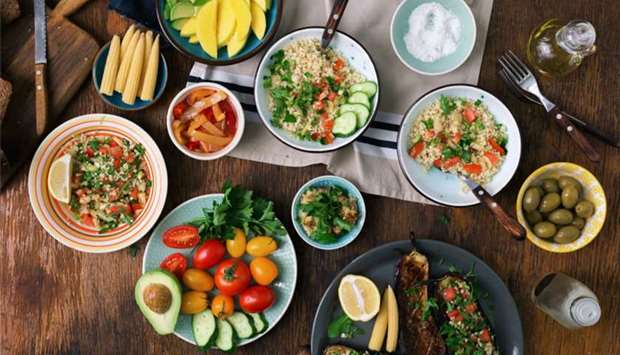Shorog Hantoush is a well-known dietician. She has master’s degree in human nutrition. She recently spoke to Community and shared some valuable tips on eating habits during the holy month.
About health benefits of Ramadan she said: “Ramadan is an opportunity to stop bad habits that negatively affect our health. It is a good chance to be healthier. Fasting strengthens the digestive system and increases its efficiency. It helps adjust triglyceride levels and improves insulin levels in the blood.”
She however added: “Despite this, Iftar meals are often a time for celebration, with families and friends coming together and consuming a lot of deep fried, creamy and sweet foods that cause an increase in cholesterol and weight gain which is the opposite of what the fasting person is trying to achieve.
“During fasting hours, the body uses its stores of carbohydrate (stored in the liver and muscles) and fat to provide energy once all the calories from the food consumed during the night are used.”
The dietician said: “Some studies have found that people who are overweight or obese lose weight and body fat during Ramadan.
“Here are some tips to stay healthy in Ramadan. Drinks are very important to stay hydrated. Depending on the weather and the length of the fast, most fasting people will experience mild dehydration, which may cause headaches and tiredness. Therefore, it is very important to break your fast by eating slowly, and start with plenty of fluids, food rich in water and low-fat drinks. Such as drinking water, eating fruits and stewed vegetables, and having a bowl of soup is helpful.
“Water causes hydration without adding extra calories or sugar. Drinks like laban or fresh juices, without adding extra sugar, provide some natural sugars which are important for daily energy.”
She added: “Lack of fluids during the day may cause constipation for some people. Consuming high fibre food, such as fruits and vegetables, whole grains, high fibre cereals, bran, nuts, dried fruits, lentils, beans, plenty of fluids from water and soups may help to ease constipation.”
Shorog further said: “Following Prophet Mohammad (peace be upon him) sunnah is having dates for breaking the fast. Dates are a great source of natural sugars for energy. Dates provide minerals like manganese, potassium and copper and are source of fibre.
She noted: “Having carbohydrates and protein in Iftar meal is also very important. Meals vary between different cultures and traditions but you have to make sure the food you eat provides a balance of starchy foods, including whole grains from pasta, rice and bread, dairy foods, protein-rich foods like meat, fish, eggs and beans, and plenty of fruits and vegetables. This is called balanced diet that provides all your requirements from carbohydras, protein and fat.
“It is natural to treat yourself after Iftar with some sweets, but try to have it in small quantity and do not eat sweets daily. Having sweets once in a week will be enough for you. Have the sweet sources more from dates and fruits as they are more nourishing. Remember that you only have a short time each day to eat and drink to give your body all the essential nutrients and fluids it needs to be healthy. So it is important to be healthy as much as we can.”
Speaking about healthy food in Suhoor, she said: “Drink enough water, choose food that will not let you be thirsty, give enough energy for the next day, and help to prevent constipation.
“Whole-grains such as oats and cereals, starchy food such as brown rice, and pasta, couscous, and whole-grain bread are very necessary. These foods have slow digestion, which helps you to not feel hungry for a long time. Also they are rich in menials and fibres. It is better you mix them with milk or yogurt, like porridge, oats with yogurt and mix with fruits, muesli, rice pudding, and cereal with milk. This provides many minerals, vitamins, and fluids, vitamin D and calcium.
“If you decided to have bread or rice, make sure they are not salty. Finally, it is important to include exercise or walk 30 minutes to one hour every day after Iftar or Traweeh because it will be very helpful for your health and digestion.”
* Shorog Hantoush is the head of nutrition team in Elements. Check their instagram page @Elements.qa

